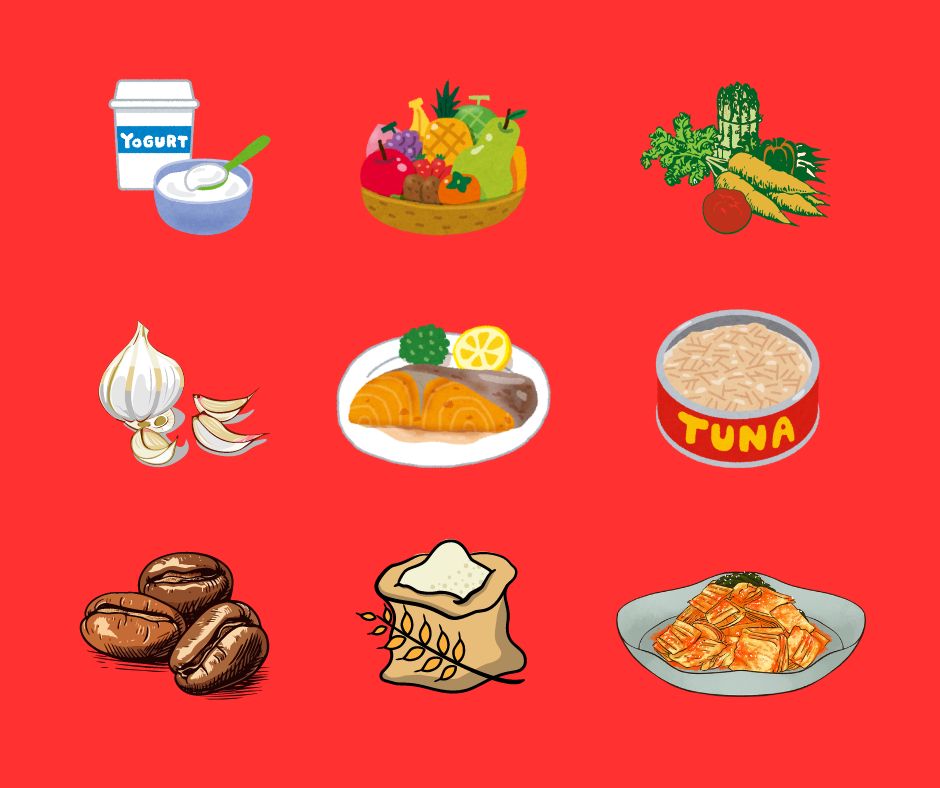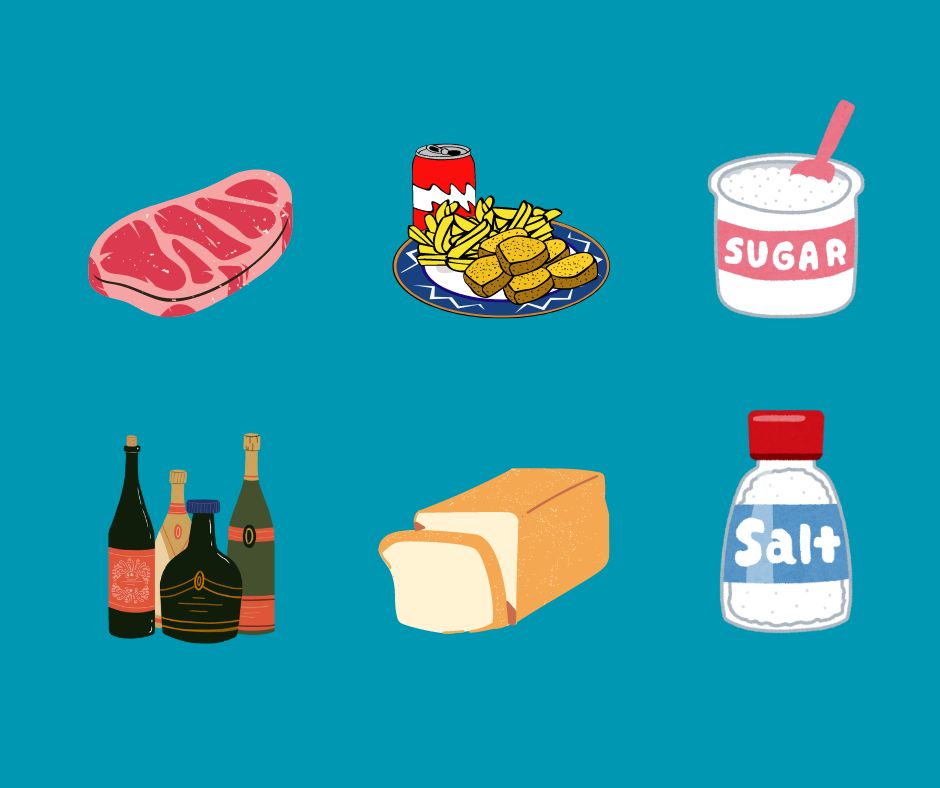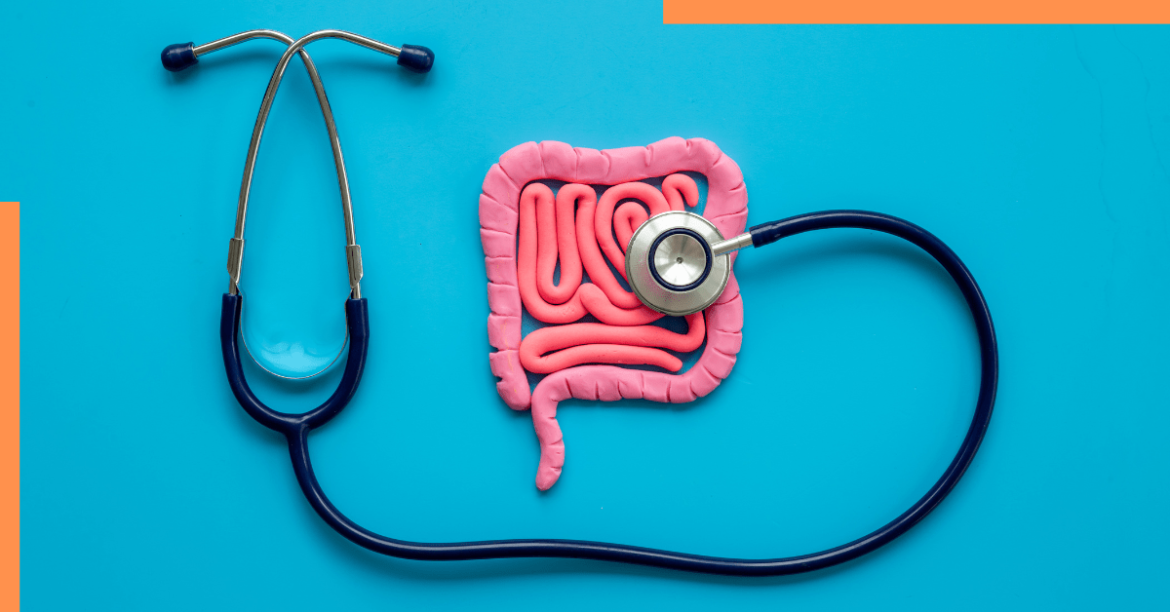Article Contents
Our digestive system is a fascinating and complex spectrum that goes through a series of intricate processes to break down food, absorb nutrients, and eliminate waste. Maintaining a healthy gut becomes increasingly crucial for overall well-being and quality of life.
In this blog, we have developed a gut health diet plan specifically designed for older adults, focusing on foods that promote gut health and provide essential nutrients for healthy aging.
But please remember, this diet plan is not a one-size-fits-all approach. It’s a starting point that can be tailored to individual needs and preferences. It is best to consult a healthcare professional or registered dietitian for personalized meal plans depending on your particular health conditions and dietary requirements.
What is gut health and why is it important?
Gut health is attributed to the overall well-being of our digestive system, particularly the trillions of bacteria, fungi, and other microorganisms that live in our gut, collectively known as the gut microbiome. It’s not just about digestion; it’s a complex ecosystem that plays a key role in various aspects of our health and well-being.
Here’s why good gut health is so important:
1. Digestion and nutrient absorption
The gut microbiome helps break down food, absorb nutrients, and eliminate waste. A healthy gut ensures efficient digestion and optimal nutrient absorption.
2. Immune system regulation
The gut accommodates a significant portion of the immune system. A balanced gut microbiome helps train the immune system to fight infections and inflammation.
3. Mental health
The gut-brain connection is a well-established concept. The gut microbiome can influence mood, anxiety, and cognitive function.
4. Inflammation control
A healthy gut helps regulate inflammation throughout the body. Chronic inflammation is linked to number of health issues, including heart disease, diabetes, and cancer.
5. Weight management
The gut microbiome can influence appetite, metabolism, and energy expenditure. A healthy gut can contribute to healthy weight management.
6. Overall well-being
Good gut health is very important for overall well-being. It can contribute to better sleep, increased energy levels, and a stronger immune system.
What are the causes of poor gut health?
More than one factor can often interact and contribute to poor gut health. Here are some of the common causes of poor gut health:
- Loading up on processed foods, sugary treats, fatty meats, and alcohol can throw your gut bacteria out of whack and cause inflammation.
- Chronic stress can impact gut health negatively by raising inflammation and altering the composition of gut bacteria.
- Insufficient sleep can derange the gut microbiome and increase inflammation.
- Certain drugs, including antibiotics and NSAIDs, have the potential to compromise the gut’s protective barrier and disturb the natural gut bacteria balance.
- Gastrointestinal infections, such as food poisoning, can damage the gut lining and lead to long-term gut health problems.
- Some people may be genetically predisposed to certain gut health problems, such as irritable bowel syndrome (IBS).
- As we age, the gut lining becomes more permeable, making it easier for harmful substances to enter the bloodstream. This can contribute to inflammation and other gut health problems.
- Regular physical activity can improve gut health by promoting blood flow and reducing inflammation.
- Exposure to environmental toxins, such as pesticides and pollutants, can also negatively impact gut health.
- Various medical problems, including diabetes and autoimmune diseases, can also be detrimental to the health and balance of the gut.
5 signs of poor gut health
Here are five signs indicating your gut health might be suffering:
1. Digestive issues
This is the most obvious sign. Experiencing frequent bloating, gas, constipation, diarrhea, or abdominal pain could indicate an imbalance in your gut microbiome.
2. Changes in mood
There is a close connection between the health of one’s gut and their mental well-being. Feeling more anxious, depressed, or irritable than usual could be a sign of gut issues.
3. Skin problems
Acne, eczema, and other skin conditions can sometimes be linked to gut health. An imbalance in the gut’s microbial community can provoke inflammatory reactions within the body, manifesting on the skin.
4. Food sensitivities
Developing new food sensitivities or intolerances could be indicative of a compromised gut lining. The gut lining is responsible for soaking up nutrients and preventing harmful stuff from entering the bloodstream. When it’s compromised, it can lead to increased sensitivity to certain foods.
5. Fatigue and low energy
A healthy gut is necessary for proper nutrient absorption. If your gut isn’t functioning optimally, you may not absorb all the necessary nutrients, leading to fatigue and low energy levels.
The best and worst foods for gut health
Now let’s take a look at the best and worst foods for gut health:
The best foods for gut health
- Fermented foods: Yogurt, kefir, sauerkraut, kimchi, miso, tempeh. These foods have probiotics, which are live bacteria that helps improve the balance of gut bacteria.
- High-fiber foods: Fruits, vegetables, whole grains, legumes. Fiber acts as a prebiotic, feeding the good bacteria in the gut.
- Prebiotic-rich foods: Asparagus, garlic, onions, bananas, leeks, Jerusalem artichokes. These foods contain prebiotics, which are carbohydrates our digestive systems can’t fully absorb but that can support the propagation of good bacteria in the gut.
- Omega-3 fatty acids: Fatty fishes like salmon, mackerel, tuna, and sardines are rich in omega-3s, which have anti-inflammatory effects that can help safeguard the gut’s lining.
- Polyphenols: Berries, apples, pears, grapes, tea, coffee. Polyphenols are antioxidants that help to reduce gut inflammation.

The best foods for gut health
The worst foods for gut health
- Processed foods: Processed meats, packaged snacks, fast food. These foods are often high in unhealthy fats, sugar, and salt, which can disrupt the balance of gut bacteria.
- Artificial sweeteners: Aspartame, sucralose, saccharin. Artificial sweeteners can change the formation of gut bacteria and may contribute to digestive problems.
- Excessive alcohol: Alcohol can damage the gut lining and increase inflammation.
- Red meat: Red meat is rich in saturated fat, contributing to inflammation in the gut.
- Sugar: Sugar feeds bad bacteria in the gut and can lead to an imbalance in the gut microbiome. Healthy sugar alternatives could be a possible replacement in this case.
- Gluten: For people with gluten sensitivity or celiac disease, gluten can cause inflammation and damage to the gut lining.

The worst foods for gut health
The ideal gut health diet plan for older adults
This gut health diet plan focuses on anti-inflammatory foods to promote healthy guts in older adults. It provides a balanced approach with a variety of nutrient-rich foods.
Total recommended calories
This plan aims for approximately 1,600-2,000 calories per day, which can be modified based on individual needs and activity levels.
Daily breakdown
Breakfast (400-500 calories)
- Option 1: 1 cup oatmeal with 1/4 cup berries, 1/4 cup chopped nuts, and a sprinkle of cinnamon.
- Option 2: 2 scrambled eggs with 1/2 cup spinach and 1/4 avocado.
- Option 3: Smoothie with 1 cup unsweetened almond milk, 1/2 cup frozen berries, 1/4 cup Greek yogurt, and 1 scoop protein powder.
Lunch (400-500 calories)
- Option 1: Salad with 4 oz grilled salmon, 1 cup mixed greens, 1/2 cup chopped vegetables, 2 tbsp olive oil dressing.
- Option 2: Lentil soup with 1 slice whole wheat bread and 1/2 cup fruit salad.
- Option 3: Leftover dinner from the previous night.
Dinner (400-500 calories)
- Option 1: Baked chicken breast with 1 cup roasted vegetables (broccoli, cauliflower, carrots) and 1/2 cup quinoa.
- Option 2: Vegetarian chili with 1/2 cup brown rice and a side salad.
- Option 3: 4 oz grilled fish with 1/2 cup steamed vegetables and 1/4 cup brown rice.
Snacks (200-300 calories)
- Option 1: 1/4 cup trail mix (nuts, seeds, dried fruit)
- Option 2: 1/2 cup Greek yogurt with 1/4 cup berries
- Option 3: 1 apple with 2 tbsp almond butter
Key considerations
- Hydration: Aim for 8 glasses of water per day.
- Fiber: Gradually increase fiber intake through fruits, vegetables, and whole grains to promote digestive health.
- Probiotics: Include fermented foods like yogurt, kefir, sauerkraut, and kimchi in your meal plan to support gut bacteria.
- Prebiotics: Consume foods rich in prebiotics like asparagus, garlic, onions, and bananas to nourish beneficial gut bacteria.
- Portion control: Be mindful of portion sizes to manage calorie intake.
- Individual needs: Talk to a healthcare professional or registered dietitian to personalize this diet plan based on your specific needs and health conditions.
Additional Tips
- Cook at home more often: This allows you to control ingredients and portion sizes.
- Read food labels carefully: Choose foods low in added sugar, saturated fat, and sodium.
- Limit processed foods: Opt for whole, unprocessed foods whenever possible.
- Be patient and consistent: It takes time to see results from dietary changes.
How to improve gut health naturally?
Improving gut health naturally takes a combined approach of dietary changes, lifestyle modifications, and proper stress management. It’s not a quick fix but a journey towards a healthier and happier gut. Here are some of the ways to improve gut health naturally:
1. Diet
- Fiber up: Load up on fruits, veggies, whole grains, legumes, and nuts.
- Ferment your way to health: Enjoy yogurt, kefir, sauerkraut, kimchi, miso, and tempeh.
- Cut back on processed foods: Such as sugar, and unhealthy fats.
- Stay hydrated: Drink plenty of water.
2. Lifestyle
- Stress less: Practice yoga, meditation, or spending time in nature.
- Sleep well: Aim for 7-9 hours of quality sleep.
- Move your body: Get regular exercise.
- Limit alcohol: It can harm your gut.
3. Other tips
- Consider a probiotic supplement.
- Talk to your doctor if you have concerns.
What are the best vitamins for gut health?
Here are the key vitamins for gut health:
- Vitamin D: Boosts immunity and reduces inflammation. Get it from sunlight, fatty fish, and fortified foods.
- Vitamin A: Maintains a healthy gut lining. Found in sweet potatoes, carrots, spinach, and dairy.
- Vitamin C: Protects the gut and supports immunity. Get it from citrus fruits, berries, and bell peppers.
- Vitamin B Complex: Essential for gut metabolism. Found in whole grains, meat, and leafy greens.
- Vitamin E: Protects the gut lining. Found in nuts, seeds, and vegetable oils.
Drinks for gut health
Here are some drinks that can support gut health:
Probiotic-rich drinks
- Kefir: A fermented milk drink similar to yogurt but with a thinner consistency and a tangier flavor. It contains a wide variety of probiotics.
- Kombucha: A fermented tea drink that is naturally bubbly and slightly sweet. It contains probiotics and beneficial yeast.
- Water kefir: A fermented drink made with water, sugar, and kefir grains. It’s a good source of probiotics and is naturally sparkling.
Prebiotic-rich drinks
- Dandelion tea: A naturally sweet and slightly bitter tea that contains prebiotics, which nourishes the good bacteria in your gut.
- Chicory root coffee: A caffeine-free coffee alternative made from roasted chicory root. It’s a good source of prebiotics and antioxidants.
Other gut-friendly drinks
- Water: Staying hydrated is essential for proper digestion and gut health.
- Ginger tea: Ginger has anti-inflammatory properties that can help soothe an upset stomach.
- Apple cider vinegar: Diluted apple cider vinegar can help balance gut pH and improve digestion.
- Smoothies: Blend fruits, vegetables, yogurt, and seeds for a nutrient-rich and gut-friendly drink.
Final thoughts
As we’ve explored, a gut-friendly diet is not just about digestion; it’s about supporting your overall health and well-being, especially as you age. By incorporating the principles of this diet plan, you can nourish your gut, boost your immune system, and enhance your quality of life.
Remember, this gut health diet plan is the starting point. Work with your healthcare provider or a registered dietitian to personalize this plan based on your individual needs and preferences.
Embrace the journey of nourishing your gut. It’s an investment in your health and vitality that will pay dividends for years to come. Enjoy the delicious and nutritious foods that support a healthy gut and a vibrant life!
FAQs
How to restore gut health after antibiotics?
Antibiotics are essential for fighting bacterial infections, but they can also disrupt the delicate balance of your gut microbiome. Here’s how to restore gut health after a course of antibiotics:
- Introduce probiotic-rich foods (yogurt, kefir, sauerkraut, kimchi) or consider a probiotic supplement.
- Consume prebiotic-rich foods (fruits, vegetables, whole grains, legumes) to nourish beneficial bacteria.
- Focus on whole, unprocessed foods, and limit sugar, processed foods, and unhealthy fats.
- Drink plenty of water to support digestion.
- Regulate stress by practicing relaxation techniques like yoga, meditation, or deep breathing.
- Aim for 7-9 hours of quality sleep and maintain proper sleep hygiene.
- Talk to your doctor or a registered dietitian about a diet rich in anti-inflammatory foods and fiber.
Is matcha good for gut health?
Matcha, a type of green tea, contains polyphenols, which have antioxidant and anti-inflammatory properties. These properties may benefit gut health by reducing inflammation and protecting the gut lining. However, more research is needed to confirm its specific effects on the gut microbiome.
Are mushrooms good for gut health?
Mushrooms, particularly certain varieties like shiitake, reishi, and maitake, are considered prebiotics. Prebiotics are non-digestible fibers that act as food for beneficial bacteria in the gut. They can help promote the growth of good bacteria and improve gut health.
Does poor gut health cause acne?
While the exact relationship between gut health and acne is still being studied, growing evidence suggests a connection. An imbalance in gut bacteria can contribute to inflammation throughout the body, including the skin, which can trigger acne breakouts.
How do men’s and women’s gut health differ?
Men and women have different gut microbiomes, which can influence their susceptibility to certain health conditions. For example, women are more prone to irritable bowel syndrome (IBS) and inflammatory bowel disease (IBD) than men. This difference may be due to hormonal fluctuations, differences in immune responses, and variations in gut bacteria composition.

